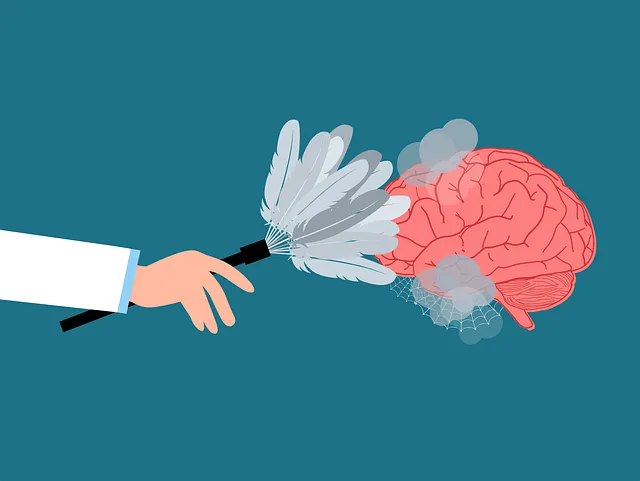The Kaiser Permanente mental health facility in Greenwood Village leverages advanced analytics to gain insights into mental illness trends and demographics, improving clinical care through tailored interventions. Data collection from EHRs, surveys, assessments, and wearable devices is crucial for evidence-based practices. Analysis tools uncover patterns, predict relapses, and enhance communication using machine learning and Conflict Resolution Techniques. Sentiment analysis and trend tracking inform personalized therapy strategies and community initiatives to improve mental health outcomes while addressing stigma and fostering resilience. Ethical considerations balance data insights with patient privacy protection.
Mental health data analysis plays a pivotal role in improving patient care at institutions like Kaiser Permanente’s mental health facility in Greenwood Village. This article explores the comprehensive journey of understanding, collecting, and interpreting mental health data within this healthcare provider. From data storage methods to advanced analytical techniques, we delve into strategies for extracting valuable insights. By examining challenges and ethical considerations, we highlight responsible practices that drive meaningful improvements in mental health services at Kaiser Permanente Greenwood Village and similar facilities.
- Understanding Mental Health Data at Kaiser Permanente Greenwood Village
- The Process of Data Collection and Storage
- Techniques for Effective Data Analysis
- Interpreting Findings: Insights and Applications
- Challenges and Ethical Considerations in Mental Health Data Interpretation
Understanding Mental Health Data at Kaiser Permanente Greenwood Village

At Kaiser Permanente Greenwood Village, understanding mental health data is a cornerstone of their comprehensive care approach. This leading mental health facility within the Kaiser network leverages advanced analytics to gain deep insights into the complex landscape of mental illness among its diverse patient population. By meticulously analyzing trends and patterns in treatment outcomes, demographics, and patient journeys, healthcare professionals can identify areas for improvement and tailor interventions accordingly.
The integration of data analysis enables Kaiser Permanente Greenwood Village to not only improve clinical care but also address broader societal challenges like mental illness stigma reduction efforts and resilience building. Through data-driven insights, they can develop and implement empathy building strategies, ensuring that their services are responsive to the evolving needs of individuals struggling with mental health conditions.
The Process of Data Collection and Storage

At a mental health facility like Kaiser Permanente in Greenwood Village, data collection and storage form the bedrock upon which evidence-based care is built. The process typically begins with patient consent, ensuring confidentiality and privacy are paramount. Data is gathered through various channels including electronic health records (EHRs), self-reported surveys, clinical assessments, and even wearable devices tracking physiological markers of mental well-being. This holistic approach ensures a comprehensive understanding of patients’ mental health states.
Once collected, data is meticulously stored in secure databases, often utilizing advanced encryption methods to safeguard sensitive information. At Kaiser Permanente, this data is not only used for individual patient care but also for broader trend analysis and research initiatives. For instance, the Community Outreach Program Implementation at the facility leverages aggregated data to identify community-wide stressors affecting mental health, thereby enhancing strategies aimed at boosting confidence and effective stress management among residents.
Techniques for Effective Data Analysis

At the Kaiser Permanente mental health facility in Greenwood Village, data analysis plays a pivotal role in understanding and improving patient outcomes. Effective techniques involve a combination of statistical methods and qualitative insights to unearth meaningful patterns within complex datasets. By employing advanced analytics tools, healthcare professionals can identify trends in patient populations, track treatment efficacy across different modalities, and even predict potential relapses or adverse events.
One powerful approach is to utilize machine learning algorithms for automated pattern recognition, enabling the facility to proactively address issues like rising anxiety levels or recurring symptoms. Additionally, integrating Conflict Resolution Techniques into data analysis workflows can foster better communication between patients, caregivers, and healthcare providers, enhancing overall Mental Health Awareness and ultimately contributing to Anxiety Relief.
Interpreting Findings: Insights and Applications

Interpretation of data from mental health facilities like the Kaiser Permanente mental health facility in Greenwood Village is a crucial step that offers valuable insights into individual and population-level mental well-being. By analyzing trends, patterns, and correlations within the collected data, healthcare professionals can uncover significant findings with diverse applications. For instance, emotional regulation strategies can be identified through sentiment analysis of patient narratives, providing actionable insights for personalized therapy approaches.
Furthermore, by examining the prevalence of certain mental health conditions over time, facilities like Kaiser Permanente can predict and proactively address emerging issues. This proactive approach is instrumental in burnout prevention and resilience building, as it enables the development of tailored interventions aimed at enhancing emotional well-being among patients. Such data-driven insights can shape clinical protocols, policy decisions, and community initiatives, ultimately contributing to improved mental health outcomes for individuals and communities served by these facilities.
Challenges and Ethical Considerations in Mental Health Data Interpretation

Mental health data analysis plays a pivotal role in understanding patient conditions and improving care strategies at facilities like the Kaiser Permanente mental health facility in Greenwood Village. However, interpreting this data comes with its unique set of challenges. One significant hurdle is the complex and nuanced nature of mental health conditions; symptoms can vary greatly among individuals, making it difficult to establish universal benchmarks for assessment. Additionally, patient data often includes sensitive information, requiring strict adherence to ethical guidelines to protect privacy and confidentiality.
Ethical considerations are paramount in this field. Researchers and healthcare providers must balance the benefits of data analysis with the potential risks to patients. This involves ensuring informed consent, maintaining data security, and using insights responsibly to avoid stigma or discrimination. For instance, while positive thinking and mental wellness coaching programs can be beneficial, misinterpretation of data might lead to inappropriate recommendations. Similarly, burnout prevention strategies for healthcare providers must be evidence-based and tailored to the specific needs of the workforce at facilities like Kaiser Permanente, balancing patient care quality with provider well-being.
Mental health data analysis is a complex yet invaluable process, as demonstrated by practices at Kaiser Permanente’s Greenwood Village. By understanding unique patient populations, implementing robust data collection methods, and employing advanced analytics techniques, healthcare professionals can uncover meaningful insights. Interpreting these findings allows for tailored interventions, improved treatment plans, and enhanced overall mental well-being. However, navigating the challenges of privacy, consent, and ethical considerations is essential to ensure responsible and effective use of mental health data at facilities like Kaiser Permanente Greenwood Village.






